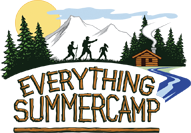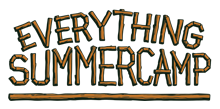Merry Christmas Eve, Everybody!
Is your household blooming with the foliage of a large indoor conifer and the scent of chestnuts roasting over an open fire? Is your mind consumed with questions like what’s in those wrapped presents? And do people still roast chestnuts?

Read on with today’s Christmas Eve Blog post from Everything Summer Camp to learn about some holiday traditions that didn’t quite start out as we know them today.
A Delicious Peacock Dinner?
Before turkeys were brought into England over 500 years ago people used to eat a rather different menu. Traditional options for Christmas dinner were geese, boars' head, and peacock. When turkeys first arrived, it was King Henry VIII who was the first to enjoy a turkey dinner on Christmas Day. Many would still opt for goose, however, turkey found its spot on the table for its size and ability to feed a whole family.
No Lie Mince Pie
Nowadays mincemeat pies are traditionally filled with a spicy mixture of dried fruit, apple, candied fruit, spices, and suet. Aside from what’s in the suet, there is no meat in this pie. So why call it a minceMEAT pie, then? Because there used to be meat in it back in the day! Folks in medieval times believed that eating a mince pie daily throughout the 12 days of Christmas would bring great happiness for the coming year.
Oh, What Fun!
You may not think it was possible, but it’s true that some Christmas carols weren’t even about Christmas originally. ‘Deck the Halls’ was actually written about New Year’s Eve—which makes sense considering the lyric ‘Hail the new year lads and lasses.’ What’s more—‘Jingle Bells’ was actually intended to be a Thanksgiving song when it was written!—originally titled ‘One Horse Open Sleigh’!
No matter where these traditions came from or how they’ve changed, the important thing is that we keep the traditions alive in our celebrations today. Enjoy your festivities and, as always, thanks for reading. Merry Christmas!
- John



